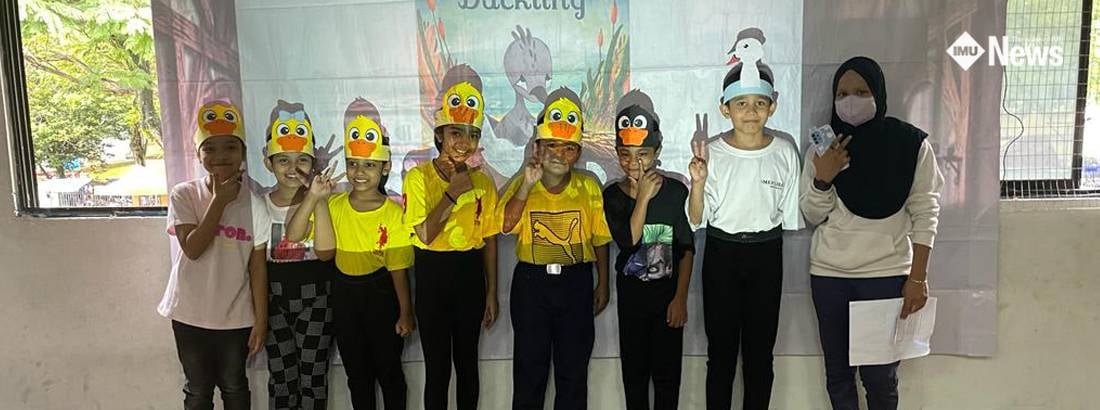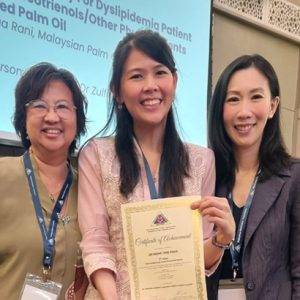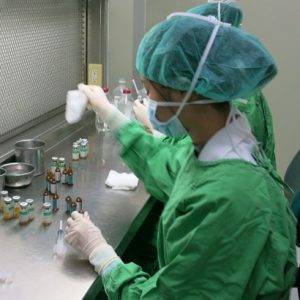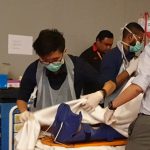On 21 May 2023, IMU staff and students organised “Dramafest”, an event that showcased refugee children conversing in English as part of the Fun with English Programme for Al-Ikhlas School for Refugee Children in Taman Murni, Gombak.
The Fun with English programme was created with the aim to teach conversational English to Rohingya refugee children and culminated with an event to demonstrate the student’s abilities after 6 months. This programme is in line with IMU Cares’ mission and United Nations Sustainable Development Goals (UNSDGs) to address inequality and provide access to quality education for all.
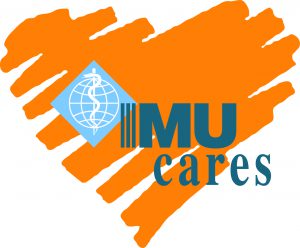
The project was initiated by IMU’s Obstetrics and Gynaecology Department and is spear-headed by Dr Khine Khine Lwin and Prof Nazimah Idris, involving staff and student volunteers from various programmes including medicine, psychology, dentistry, nutrition and dietetics.
Our Team’s Visits Prior to “Dramafest”
Prior to the “Dramafest”, our group of volunteers conducted visits every 4th Saturday of the month for 8 visits. The initial couple of visits were to collect information about the needs of the school and its students as well as the needs of the refugee community. This helped to plan the type of event to be showcased and the fun age-related activities to be carried out for each visit. After deciding on having theatrical plays based on popular fairy tales as the showcased event, scripts were created based on the proficiency level of the students. Each visit starts with a fun activity such as charades, songs or Pictionary, followed by vocabulary lessons and the rehearsal of the plays.
During the visits, volunteers learned about the refugee situation in Malaysia, the prejudice they faced and what is the process of resettling the community in other countries. They also learned to network with NGOs and the teachers in that community. In the process of teaching, both our staff and students learned how to communicate effectively with the children.
Based on the comments by our community partner, they can see improvements in the usage of English communication among the children. We noted that the children would now ask permission verbally rather than use simple signs when they wanted to drink or go to the toilet. Our volunteers also got to explore their creative sides by creating props for the plays.
Haziqah Packirgani, a recently graduated psychology student shared her experience
“Teaching the students was a valuable experience. Seeing their passion and dedication to learning inspired me to do better. I tried to make my lessons fun and interactive. I learned about the different paces that children had in learning – some stuttered more and had difficulty retaining their attention and they might need professional help to assess and guide them. I feel inspired and fulfilled by these children, and their dedication to learning despite the obstacles they faced.”
Princeton Yeoh, a 4th-year medical student added, “It was difficult to ensure that the children were adequately prepared, and we had to collaborate with the teachers in the school. This allowed me to improve my communication and leadership skills.”
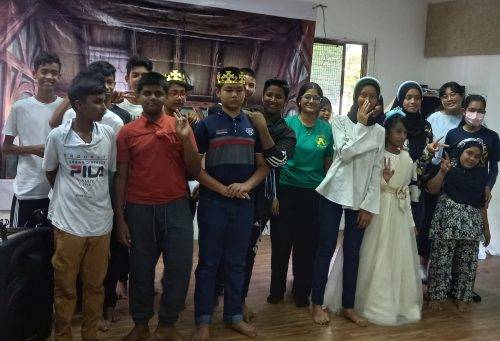
During the day of the “Dramafest”, the volunteers organised a colouring contest and a Spelling Bee competition which saw the participation of about 40 children and 10 kindergarten children respectively. Another group of volunteers were working on setting up the backdrop, banners and the electronics system for the fairy-tale plays. They also prepared the students in their costumes and gear in preparation for the play.
Nur Adila binti Samingan from the Division of Nutrition and Dietetics, IMU, gave an interactive and educational talk on healthy eating habits during the programme. Her talk included the nutritional values of different food groups and the cost of each type of food. This allowed parents to compare the costs of food options available whilst also educating them that healthy eating need not be expensive.
Norliza Nordeen, Founding Member of Al-Ikhlas Hope Society
“With the format being of conversation classes, with an emphasis on speaking, they get to learn how to interact and use English practically. An advantage of being taught by IMU volunteers is that they get to observe English being used in everyday communication, be exposed to (and participate) in English conversations which are more free-flowing and natural. Most of the students and their families are UNHCR-card holders, which means that they are in a queue to be resettled to a new home country, most probably a Western, English-speaking one, within the coming few months/years. Exposure to practical conversational English is important to prepare them better for this possible resettlement, allowing them to settle in and integrate into school and society in their new home countries more easily and comfortably”
“The event exceeded our expectations. It was inspiring to witness their growth and see them shine on stage. The preparations for this have reinforced the importance of effective communication and organisation involving multiple parties. And this is an integral part of multidisciplinary team care in medicine.”
Our 4th year medical students Princeton and Azahim’s reflections
Haziqah adds, “This programme taught me spontaneity and flexibility to adapt to changes. Sometimes, the children can be reserved which meant I needed to do activities or lessons that would pique their interest. Sometimes, they were playful and mischievous which meant I needed to figure out a solution to tone down their behaviour while not being too strict with them.”
This event has given opportunities to both the refugee community as well as our volunteers. The refugee community has now been exposed to a style of learning which they are likely to encounter as they are resettled in the Western countries.
Our staff and students have learnt organisational and effective interdisciplinary communication skills as the volunteers were a mix of students and staff from different faculties. They were also encouraged to work together with the teachers from the refugee school. During the process, they also learned to embrace their creative side by preparing scripts, backdrops, costumes, and props.
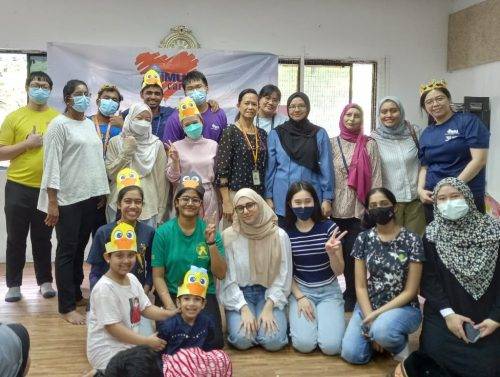
Haziqah reflects, “It helped me to build my interpersonal skills as I had to communicate with children who derived from various age groups and backgrounds. As an aspiring healthcare worker, these skills were essential for me to attain in order for me to serve my clients better so that they may feel comfortable and safe in their healing process.”
We believe that this project has been beneficial to all involved. The refugee children are encouraged to speak English and this type of learning exposes them to the environment that they will face later. Our staff and students are now more confident in communicating and collaborating with people outside of our usual circles.
We would like to thank Al-Ikhlas School and the Al-Ikhlas Hope Society for their eager participation. We would also like to thank Nur Adila for volunteering to educate us on healthy eating habits.
Prepared by Dr Khine Khine Lwin




